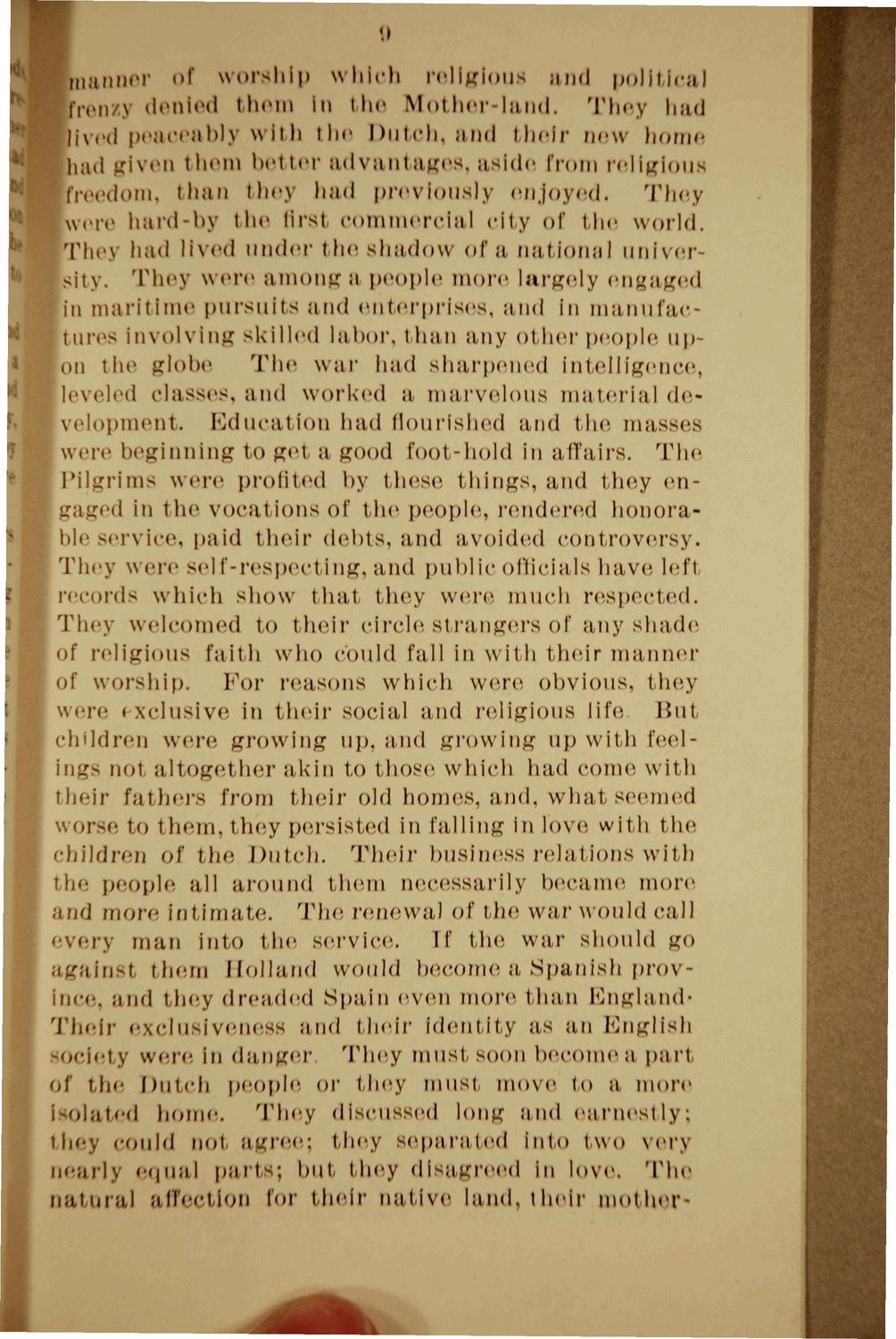Caption: Convocation - 1896 (Forefathers' Convocation)
This is a reduced-resolution page image for fast online browsing.

EXTRACTED TEXT FROM PAGE:
manner of worship which religious and political fivn/A den! I them In the Mother-land, They had lived peaceably with the Dutch, and their new hom< had given them better advantages, aside from religion freedom, than they had previously enjoyed. They were hard-by the first commercial city of the world. They had lived under the shadow of a national university . They were among a people more largely engaged in maritime pursuits and enterprises, and in manufactures involving skilled labor, than any other people upon the globe The war had sharpened Intelligence, le\ led classes, and worked a marvelous material development. E d u c a t i o n had flourished and the masses were beginning to get a good foot-hold in affairs. T h e Pilgrims were profited by these things, and they engaged in the vocations of the people, rendered honorable service, paid their debts, and avoided controversy. They were self-respect ing, and public officials have left records which show that they were much respected. They welcomed to their circle strangers of any shade of religious faith who could fall In with their m a n n e r of worship. For reasons which were obvious, they were exclusive in their social and religious life But children were growing up. and growing up with feelings not altoget her akin to those which had come with their fathers from their old homes, and, what seemed worse to them, they persisted in falling in love with the children of the Dutch. Their business relations with the people all around them necessarily became more ind more int imate. The renewal of the war would call every man Into the service. If the war should go gain I them Holland would become a S p a n i s h p r o v ince and they dreaded Spain even more t h a n England* i heir exclusiveness and their Identity as an English ociety were In danger. They must, soon becomea part of the Dutch people or they must, move to a more i HO la ted home. They discussed long and earnestly; they could not, agree; they separated into two very nearly equal p a r t s ; but they disagreed in love. The natural affection tor their native land, their mother*
|